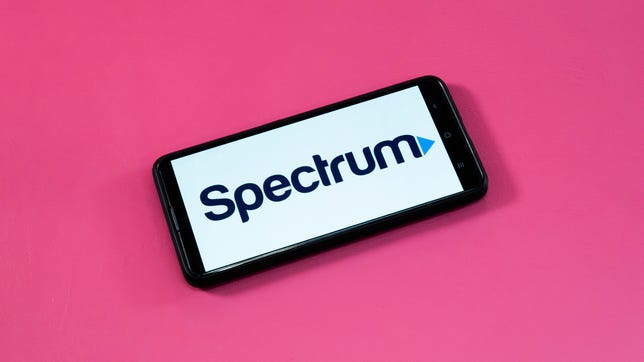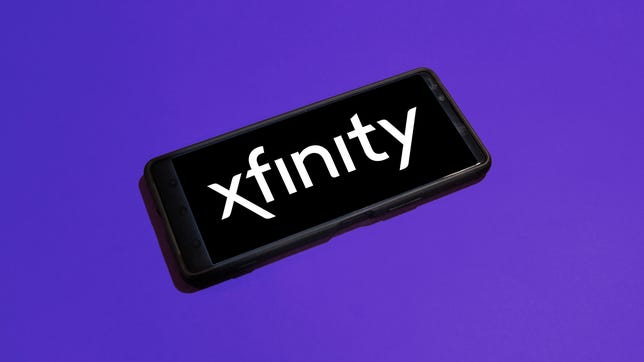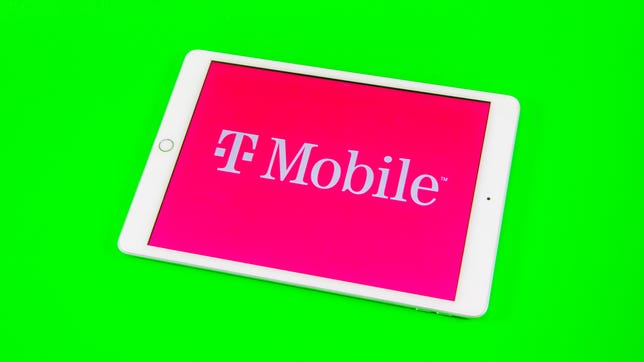Orlando is such a popular town, so it makes sense that its residents have several choices on internet provider. Cable titans Spectrum and Xfinity offer a variety of plans and speeds throughout the area, and a respectable percentage of the city is wired for fiber from providers like AT&T and CenturyLink, as well. On top of that, Verizon and T-Mobile are each offering cellular home internet services in Orlando over 5G airwaves, and coverage is on the rise. With so many options available, it can be difficult to decide which is the best internet provider in Orlando. That’s why we’re here to help.
Still, as in any part of the country, the best internet provider for anyone living in Orlando depends on what’s actually available at your specific address. You can enter your ZIP code into the tool below for a quick overview of the top options in your area, but keep reading for more details on what separates them, from plan pricing and speeds to equipment costs, data caps and other particulars from the fine print.
Sarah Tew/CNET
The first step to finding the best home internet service is to check whether fiber is available at your address. Fiber-optic home internet will typically offer the fastest upload and download speeds at the best value.
In Orlando, your best odds for finding a fiber connection lies with AT&T. The company offers home internet service throughout the central Orlando area and surrounding regions, including Conway, Lockhart, Oak Ridge, Orlo Vista, Oviedo and Union Park. The majority of addresses within that footprint will only be serviceable for AT&T’s slower DSL plans, which aren’t anything worth getting excited about. Still, a significant percentage of AT&T’s customers in Orlando also have access to fiber plans starting at $55 per month, complete with no data caps, equipment fees or preset price increases after year 1.
“AT&T Fiber is available to hundreds of thousands of locations across our current fiber footprint in the Orlando metro area,” a spokesperson said, adding that multi-gig speeds of 2 and 5 gigabits per second are on the rise within the footprint, and currently available to nearly half of Orlando fiber customers.
Scanning through addresses in the area, I found plenty of availability for AT&T Fiber in downtown-adjacent regions like College Park, Lake Como, Metro West, the Milk District, Park Lake/Highland and Thornton Park. However, availability was much harder to find in surrounding regions like Fern Park, Hiawassee and Meadow Woods. If it’s available at your address, the strong value, fast speeds and attractive terms of AT&T Fiber make it one of the most worthwhile home internet services in the US.
AT&T Home Internet
You’re receiving price alerts for AT&T Home Internet
Sarah Tew/CNET
One of two major cable providers offering internet service in Orlando (Comcast Xfinity is the other), Spectrum’s coverage map covers the entirety of the downtown area and surrounding regions like Apopka, Kissimmee and Oviedo. That means that just about everyone living in or near Orlando will have the option of Spectrum’s cable internet plans at their address — and, as home internet options go, it’s a pretty decent one.
True, cable internet comes with slow upload speeds compared to fiber, but Spectrum’s plans ditch the data caps, which keeps things relatively straightforward as far as your bill is concerned. Download speeds as high as 940Mbps are available for $90 per month during the first year, but the 300Mbps baseline plan is plenty fast and only costs $50 per month during year 1. The jump to $75 per month after 12 months is a tad steep, but it’s still a superior value to slower DSL and fixed wireless plans with a much higher cost per Mbps. That makes Spectrum’s cable plans an above-average backup for addresses where fiber isn’t an option just yet.
Spectrum Internet
You’re receiving price alerts for Spectrum Internet
Sarah Tew/CNET
If you’re looking to bring your home internet bill down as low as possible, then your best bet might be Comcast, which offers Xfinity cable internet plans in select neighborhoods outside of central Orlando, including Alafaya, Flamingo, Lockhart, Narcoossee and Union Park. While entry-level plans from other area providers like AT&T, Spectrum and CenturyLink start at about $50 per month, Xfinity offers internet service starting at $30 per month, albeit with underwhelming speeds of 75Mbps down and 10Mbps up. You’ll need to contend with a 1.2TB data cap and a price increase after the first year. However, it’s still the best deal on a baseline internet plan from any major provider in the area, and additional discounts may be available for bundling in other services like TV or home security.
Faster plans with download speeds as high as 1.2Gbps should be available to most, if not all, Xfinity customers in the Orlando area. They might be worth considering if you lack other options for a high-speed connection — though you aren’t likely eligible for upload speeds any faster than 35Mbps. Even so, Xfinity is a respectable option, especially if you’re trying to bring your home internet bill down below $50 per month.
Xfinity Internet
You’re receiving price alerts for Xfinity Internet
Sarah Tew/CNET
In addition to managing mobile devices, T-Mobile has a growing home internet business, and service is available now in Orlando at a flat rate of $50 per month. Speeds will vary based on the strength of the cellular signal at your address. They’ll typically be lower than you’d get with Verizon since T-Mobile relies more on previous-gen 4G/LTE airwaves to make up the backbone of its home internet footprint — but that also means that T-Mobile is available at more addresses.
The other thing to know about T-Mobile is that the carrier is currently making an aggressive push for new customers, all of whom will receive a free year of Paramount Plus and other discounts. Even better, T-Mobile now guarantees that your monthly bill won’t go up as long as you keep service. On top of that, if you have a qualifying Magenta Max mobile plan with T-Mobile, you can also knock $20 off your home internet bill, bringing the monthly cost down to just $30. All of that makes it pretty tempting to try T-Mobile if your other internet options leave much to be desired.
TMobile
Orlando internet providers compared
| Internet technology | Speed range | Monthly starting price | Regular monthly rate (after 12 months) | Data caps | |
|---|---|---|---|---|---|
| AT&T Home Internet | DSL | 5-100Mbps downloads, 1-20Mbps uploads | $55 | $70 | 1TB (no data cap with 100Mbps plan) |
| AT&T Fiber | Fiber | 300-5,000Mbps downloads and uploads | $55-$180 | $55-$180 | None |
| CenturyLink | DSL | 20-140Mbps downloads, 2-40Mbps uploads | $50 | $50 | None |
| Comcast Xfinity | Cable | 75-6,000Mbps downloads, 5-6,000Mbps uploads | $30-$300 | $50-$300 | 1.2TB |
| Quantum Fiber (CenturyLink) | Fiber | 200-940Mbps downloads and uploads | $50-$65 | $50-$65 | None |
| Spectrum | Cable | 300-940Mbps downloads, 10-35Mbps uploads | $50-$90 | $75-$115 | None |
| T-Mobile Home Internet | 5G/LTE | 33-182Mbps downloads, 6-23Mbps uploads | $50 ($30 with qualifying Magenta Max mobile plan) | $50 ($30 with qualifying Magenta Max mobile plan) | None |
| Verizon | 5G/LTE | 85-1,000Mbps downloads, 50Mbps uploads | $50-$70 (50% less with a qualifying Verizon mobile plan) | $50-$70 (50% less with a qualifying Verizon mobile plan) | None |
CenturyLink: DSL internet service from CenturyLink is an option throughout much of the regions surrounding Orlando to the north, west and south, but availability is scarce in the city itself. Service costs a flat $50 per month with no data caps or preset price increases, all of which are pretty appealing by home internet standards. But speeds will vary from address to address, and in most parts of the coverage map, they won’t exceed double digits. And unless you have your own equipment, you’ll also need to spend $15 per month to rent the gateway device that brings your home online.
In most cases, Orlando residents will have other, better options than DSL available at their address. For instance, consider Spectrum, which is available to the wide majority of Orlando residents. Its baseline plan costs $50 per month during the first year, the same as CenturyLink, and its download speeds of 200Mbps are notably faster than the fastest CenturyLink speeds. Still, if you’re out of other options like those, or if you hate the idea of your bill going up after year 1, then CenturyLink might make sense as a relatively low-hassle provider.
Quantum Fiber from CenturyLink: With speeds that typically won’t surpass double digits, CenturyLink’s DSL plans are pretty ho-hum as far as home internet is concerned — but the company also offers fiber internet service in the Orlando area, and that’s where things get interesting.
Branded as Quantum Fiber, the service offers matching upload and download speeds of 200Mbps for $50 per month, plus $15 per month for the modem rental. A faster gigabit plan with download speeds of 940Mbps is also available at some addresses for $65 per month. Best of all, those plans don’t come with data caps or prescheduled price increases after year 1, which makes them an excellent option — if they’re available at your address.
That’s a big if. CenturyLink wouldn’t disclose any customer counts when I asked, but as of the end of 2020, which is as up-to-date as the Federal Communication Commission’s data currently gets, fiber only made up about 22% of CenturyLink’s national home internet footprint. Here in 2023, I found addresses serviceable for Quantum Fiber in suburbs like Kissimmee and Apopka, but most neighborhoods I scanned were left with DSL as the only CenturyLink option at hand. Availability seems to be on the rise, though — at addresses in places like Forest City, the Quantum Fiber website says that service is scheduled to arrive on July 30.
Satellite internet: The ultimate internet backup plan, satellite internet is available just about everywhere in the US — all you really need is a relatively clear view of the sky. It’s also excessively expensive and not terribly fast by today’s standards, and the round-trip to space that your data needs to make whenever you click a link or refresh a feed means that you can expect some lags to your connection, too.
All of that is why you should leave satellite as a last resort for homes where literally nothing else is available. If that’s the situation you’re in, you have a couple of options. HughesNet and Viasat are the biggest names in the business, and they’re really two sides of the same coin. Both charge hundreds for the equipment (though Viasat charges a little less), both enforce two-year contracts and potentially steep monthly costs (though a little less steep with HughesNet), and both come with tight data caps and limited speeds (though Viasat might be slightly faster at some addresses). If it were me, I’d probably start with Viasat to see what speeds were available at my address, then go with HughesNet for the slightly lower costs if those Viasat speeds left me underwhelmed. You can read more in our full, versus-style rundown between the two.
Satellite internet service from Starlink might be an option at your address, but it might not be available immediately, and it won’t come cheap.
Screenshot by Ry Crist/CNET
Your other option is Starlink, the satellite internet service from SpaceX and Elon Musk. It doesn’t come with data caps like HughesNet and Viasat plans do, and the speeds will likely be a bit higher than either of those competitors. But the upfront equipment cost of $599 and monthly rate of $110 are each tough pills to swallow, and you may need to spend some time on a waitlist before you’ll be able to actually start service.
Verizon 5G Home: Like T-Mobile, Verizon is pushing hard to expand access to affordable cellular home internet services this year, including over 5G airwaves. Verizon is putting more of a focus on 5G with its service, which means that the range of potential speeds at your address is notably higher than you’ll see from T-Mobile. However, that also means that fewer addresses will have the right kind of signal strength to even be eligible for service.
Verizon’s 5G coverage map shows fairly strong 5G Ultra Wideband airwaves over the Orlando area, which is what you’ll need for 5G Home internet service with the fastest speeds possible. However, I wasn’t able to find a single address in Orlando that was eligible for service, even in parts of town that have a strong 5G signal per Verizon’s map. If you’re planning on going the 5G route, Verizon’s potential for faster speeds means that it’s still worth checking to see if it’s available at your address, especially for existing Verizon mobile subscribers, who may be able to sign up for home internet service with a 50% discount. For now, however, it seems like Orlando natives will have better luck securing service over the air from T-Mobile.

John Coletti/Getty Images
What are the cheapest internet plans in Orlando?
In most cases, home internet starts at about $50 per month in Orlando, although some residents within Xfinity’s footprint will be able to sign up for internet service at $30 per month, which is the most affordable starting rate in the city. Here’s a look at how all of the top providers’ most affordable plans compare:
Least expensive internet plans in Orlando
| Internet technology | Cheapest plan speeds | Monthly starting price | Regular rate (after 12 months) | Data caps | |
|---|---|---|---|---|---|
| AT&T Home Internet | DSL | 5-100Mbps downloads, 1-20Mbps uploads | $55 | $70 | 1TB (no data cap with 100Mbps plan) |
| AT&T Fiber | Fiber | 300Mbps downloads and uploads | $55 | $55 | None |
| CenturyLink | DSL | 20-140Mbps downloads, 2-40Mbps uploads | $50 | $50 | None |
| Comcast Xfinity | Cable | 75Mbps downloads, 10Mbps uploads | $30 | $49 | 1.2TB |
| Quantum Fiber | Fiber | 200Mbps downloads and uploads | $50 | $50 | None |
| Spectrum | Cable | 300Mbps downloads, 10Mbps uploads | $50 | $75 | None |
| T-Mobile Home Internet | 5G/LTE | 33-182Mbps downloads, 6-23Mbps uploads | $50 ($30 with qualifying Magenta Max mobile plan) | $50 ($30 with qualifying Magenta Max mobile plan) | None |
| Verizon | 5G/LTE | 85-1,000Mbps downloads, 50Mbps uploads | $50 (50% less with a qualifying Verizon mobile plan) | $50 (50% less with a qualifying Verizon mobile plan) | None |
Among the fiber providers, you should count yourself lucky if either AT&T Fiber or Quantum Fiber are available at your address, because each offers a low-cost plan with attractive speeds, no data caps, and no price increases after the first year (200Mbps up and down for $50 per month with Quantum, 300Mbps up and down for $55 per month from AT&T). You’ll need to tack on an extra monthly fee for the modem and router rental with Quantum, but still, both options are great picks for fast home internet at a value.
As for the rest, you’ll want to keep an eye on your monthly rate after year 1, as most of those entry-level plans see a price increase after the first year. Kudos to CenturyLink, which doesn’t enforce a price increase at all — its plans can’t compete with faster cable or fiber offerings, but the straightforward pricing is still a definite perk and one that puts it ahead of AT&T as far as DSL value goes.
The other thing to keep in mind is that qualifying low-income households can apply for the Affordable Connectivity Program, a government-funded internet subsidy that knocks $30 off of your monthly bill. Some providers, including Xfinity, offer low-income plans for $30 or less, so that subsidy could bring your bill all the way down to zero. You can read more about the Affordable Connectivity Program on CNET, and you can check the links below for provider-specific advice on how to sign up.
What are the fastest internet plans in Orlando?
Among US metro regions, the Orlando area ranks in at 67th as far as median internet speeds go, with an average household download speed of 172Mbps as per the speed-testing site Ookla. That’s just an average, though — how fast can things get in an ideal scenario?
Pretty darned fast, actually. Multiple providers in the Orlando area now claim to offer multi-gigabit speeds at select addresses with the right fiber wiring. They aren’t widespread yet, but here’s how those speeds stack up against the fastest plans from all of the top providers in the area:
Fastest internet plans in Orlando
| Internet technology | Fastest speed available | Starting monthly price | Regular monthly rate (after 12 months) | Data caps | |
|---|---|---|---|---|---|
| AT&T Home Internet | DSL | 5-100Mbps downloads, 1-20Mbps uploads | $55 | $70 | 1TB (no data cap with 100Mbps plan) |
| AT&T Fiber | Fiber | 5,000Mbps downloads and uploads | $180 | $180 | None |
| CenturyLink | DSL | 20-140Mbps downloads, 2-40Mbps uploads | $50 | $50 | None |
| Comcast Xfinity | Cable | 6,000Mbps downloads and uploads | $300 | $300 | None |
| Quantum Fiber | Fiber | 940Mbps downloads and uploads | $65 | $65 | None |
| Spectrum | Cable | 940Mbps downloads, 35Mbps uploads | $90 | $115 (after 24 months) | None |
| T-Mobile Home Internet | 5G/LTE | 33-182Mbps downloads, 6-23Mbps uploads | $50 ($30 with a qualifying Magenta Max mobile plan) | $50 ($30 with a qualifying Magenta Max mobile plan) | None |
| Verizon | 5G/LTE | 85-1,000Mbps downloads, 50Mbps uploads | $50-$70 (50% less with a qualifying Verizon mobile plan) | $50-$70 (50% less with a qualifying Verizon mobile plan) | None |
As you can see, AT&T Fiber and Comcast Xfinity jump right off that chart, with upload and download speeds as high as 5,000 megabits per second, or 6 gigabits per second, respectively. AT&T says its multi-gig plans are currently available to roughly half of the hundreds of thousands of Orlando homes already wired for fiber. Speeds like those don’t come cheap, as you’ll need to pony up $180 each month for them, but that’s hardly a surprise given that this is one of the fastest home internet plans in the country we’re talking about here.
As for Comcast, the company offers 6 gig Xfinity speeds at select homes wired for fiber. How select? The company doesn’t share customer metrics, but the percentage of fiber-eligible homes in its footprint was pegged at 4% in the most recent FCC data from June 2021, so the odds seem very slim that your home will be eligible. Even if it is, you’ll need to pay a whopping $300 per month for service, complete with a site inspection and a two-year contract.
At the wide majority of Xfinity homes, though, the fastest plan available will come with downloads of 1,200Mbps and uploads of 35Mbps for $80 per month during the first year and $109 per month after that. Still fast — but still cable.
Internet providers in Orlando FAQs
How fast is home internet in Orlando?
According to Q3 2022 data from the speed-testing website Ookla, the average home internet speeds in Orlando clock in at 172.18 megabits per second, with AT&T topping the list of the fastest internet providers in the area. Orlando’s internet speeds are 67th fastest in the country, per Ookla, ranking ahead of Miami (68th) and behind the Florida cities of Hialeah (24th), Jacksonville (28th), Tampa (33rd) and St. Petersburg (39th).
Does Orlando have Google Fiber?
Google Fiber is not available in Orlando, or in any part of Florida. However, select locations in the Miami area are wired for Google Fiber Webpass, a high-speed fixed wireless internet service.
Is fiber internet better than cable internet?
Fiber-optic internet offers significantly faster speeds than cable internet, particularly upload speeds, and it’s less prone to slowdowns during periods of peak network usage. Fiber internet plans are also typically priced similarly to cable internet plans, so they also tend to offer more speed for your dollar.






